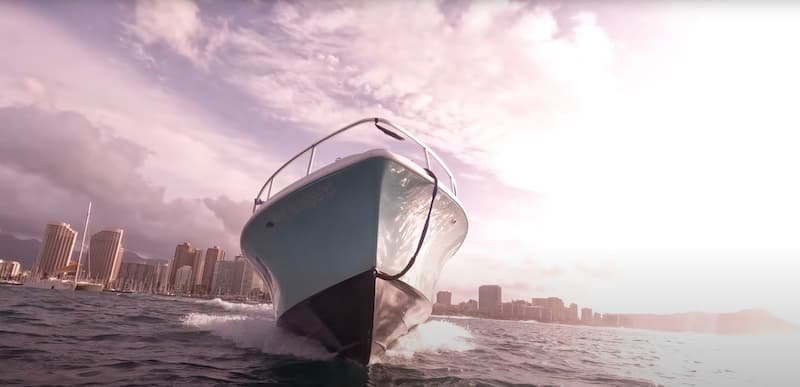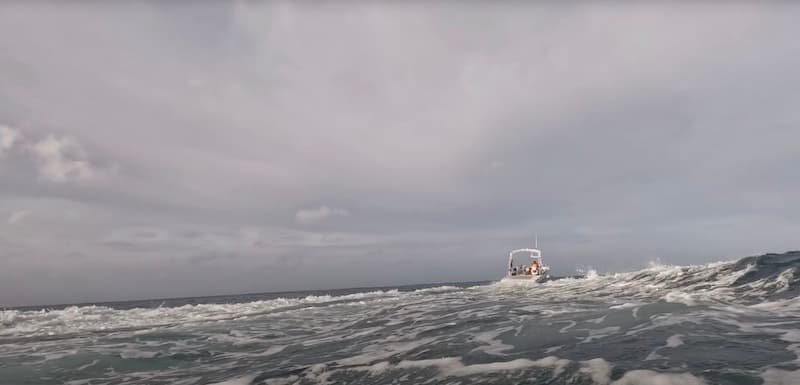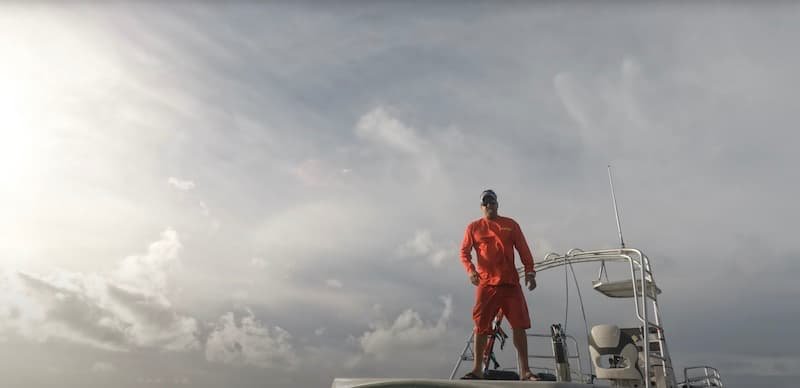
 Roni Essex
Freediver, Spearo, Creator
Roni Essex
Freediver, Spearo, Creator

 Roni Essex
Freediver, Spearo, Creator
Roni Essex
Freediver, Spearo, Creator
Picture this: you're submerged in the tranquil blue, weightless and serene, when suddenly the silence is shattered by the roar of engines overhead. This scenario is all too common for freedivers sharing waters with boats. Unlike the splash and churn that warn marine life of an approaching vessel, the noise of boats often goes unnoticed by those below the surface until it's dangerously close.
In recent years, the number of accidents and fatalities among divers caused by boat traffic has been alarmingly high. Tragically, many divers have lost their lives or suffered severe injuries due to collisions with boats or becoming entangled in propellers. These incidents serve as stark reminders of the urgent need for increased awareness and safety measures to protect the lives of freedivers in shared waters.
Visibility challenges present a significant hazard for freedivers navigating alongside boat traffic. When underwater visibility is compromised, either due to murky waters, sediment stirred up by boat movement, or turbulent currents, divers face heightened risks. Poor visibility not only obstructs a diver's ability to see approaching boats but also makes it harder for boat operators to spot divers beneath the surface. This mutual inability to detect each other increases the likelihood of accidents and collisions. Moreover, reduced visibility makes it challenging for divers to maintain spatial awareness and navigate safely, potentially leading to unintentional drift into areas with higher boat traffic. These visibility challenges underscore the importance of taking proactive measures to enhance safety, such as using brightly colored surface markers and buoys to signal their presence to boat traffic and avoiding diving in areas with known poor visibility during peak boating times.

Entanglement hazards pose a grave threat to freedivers sharing waters with boat traffic. The propellers and equipment of boats present potential entanglement points for divers, leading to serious injuries or even fatalities. The risk of entanglement is especially pronounced in areas where fishing activities are common, as fishing lines and nets can pose hidden dangers beneath the surface. Even a momentary lapse in attention or a misjudgment of distance can result in a diver becoming ensnared in underwater hazards. Once entangled, the diver may struggle to free themselves, risking further injury or drowning. Additionally, the force exerted by a boat's propeller can cause severe trauma, including lacerations, amputations, or fatal injuries. Furthermore, entanglement incidents can occur not only during dives but also during ascent or descent phases, when divers may inadvertently come into contact with underwater obstructions. To mitigate entanglement hazards, divers must exercise caution when navigating near boats or fishing areas, remain vigilant for potential hazards, and equip themselves with appropriate safety gear, such as dive knives or shears, to quickly extricate themselves if necessary. Additionally, fostering communication and cooperation between divers and boat operators can help raise awareness of potential entanglement risks and facilitate safer coexistence in shared waters.

The impact of boat traffic on marine life is profound and far-reaching, affecting ecosystems in ways that extend beyond the immediate dangers posed to human divers. Speeding boats can disrupt delicate habitats, such as coral reefs and seagrass beds, through the physical destruction caused by hulls and propellers, as well as the turbulence generated by fast-moving vessels. These disturbances can lead to habitat degradation, loss of biodiversity, and diminished reproductive success for many marine species. Additionally, the noise pollution generated by boat engines can disrupt communication and navigation patterns for marine animals, including cetaceans and fish, which rely on sound for essential life functions such as foraging, mating, and avoiding predators. Collisions with boats are a significant cause of injury and mortality for marine mammals and sea turtles, whose slow movement and surface-dwelling behaviors make them particularly vulnerable to vessel strikes. Furthermore, the discharge of pollutants from boats, such as oil, fuel, and sewage, can contaminate marine environments, leading to water quality degradation and toxicological effects on marine organisms. The cumulative impact of these stressors poses a serious threat to the health and resilience of marine ecosystems, highlighting the urgent need for comprehensive conservation measures to mitigate the adverse effects of boat traffic on marine life.

While the dangers of boat traffic for freedivers are real and pervasive, there are steps that both divers and boat operators can take to minimize the risks:
Education and Awareness: Both divers and boat operators should educate themselves about the risks associated with sharing waters. Awareness of local regulations, navigation rules, and popular dive sites can help prevent accidents.
Communication: Clear communication is key to ensuring mutual safety. Divers should use surface markers and buoys to signal their presence to boat traffic, while boat operators should maintain a safe distance from dive areas and proceed with caution.
Designated Dive Zones: Establishing designated dive zones and implementing speed limits in areas frequented by freedivers can help reduce the likelihood of accidents and protect marine habitats.
Technology: The use of technology such as underwater sonar systems and GPS navigation devices can enhance situational awareness for both divers and boat operators, reducing the risk of collisions.
Freediving offers a unique opportunity to explore the wonders of the underwater world in a way that few other activities can match. However, the dangers posed by boat traffic underscore the importance of vigilance, communication, and respect for the marine environment. By working together to mitigate these risks, we can ensure that freedivers and boat operators alike can safely coexist, preserving the beauty and biodiversity of our oceans for generations to come.